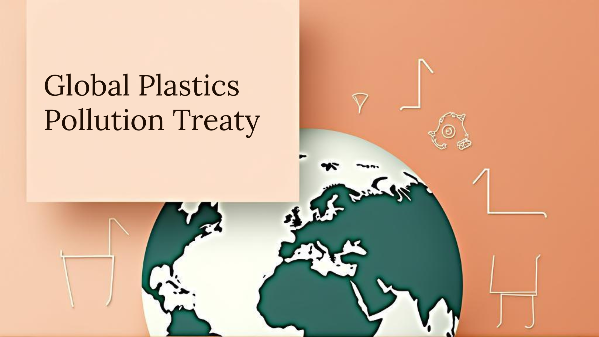Introduction
The latest negotiations at the United Nations, marking the sixth round of talks in just under three years, have once again ended in disappointment with no consensus reached. With little progress to show for the effort, the grand goal to agree on a landmark plastics pollution treaty seems even further out of reach. Yet according to the Chinese delegation, this round of talks moved the needle forwards, providing a better starting point for the next. After all, the fight to regulate plastic pollution on a global scale is bound to be a lengthy marathon. This temporary setback, in the grand scheme of things, has only intensified the need to forge a consensus between nations now more than ever.
With the environment in a precarious state, it becomes ever more important to highlight of pivotal role of this treaty in the environmental regulatory landscape. This article thus explores the need for a global plastics pollution treaty, the reasons why countries have yet to agree, and the remarks of key players made in light of the most recent Geneva plastic pollution talks.
As Swedish European Commissioner, Jessika Roswall so powerfully reminds us: “The Earth is not ours only. We are stewards for those who come after us. Let us fulfil that duty."
Addressing the Problem
Plastics pose a grave and growing threat to human health, causing disease and death amongst all age groups. In the economical sphere, they are responsible for health-related losses exceeding £1.1 trillion annually. Scientists, in particular, are concerned about the toxic chemicals contained in plastics, which can leach out as it breaks down into smaller pieces. Research has amplified this concern as it revealed the presence of microplastics in the soil, rivers, air, and even in multiple organs within the human body. In spite of the concerning scientific evidence, global plastic production reached approximately 475 million tonnes in 2022, marking an insurmountable rise from the two million tonnes recorded in 1950. Without any substantial and real policy changes, global plastic production could increase by a further 70% annually by 2040.
The Failure of the Sixth Round
The most recent negotiations saw a divide between nations. Roughly 100 countries called for curbs to plastic production whereas prominent oil-producing countries pushed for a focus on recycling. This conflict echoes the core question that has defined previous negotiations from 2022 onwards: 'Should the treaty tackle plastics at its source, by reducing production, or should it focus on managing the pollution that comes from it?' A debate that was originally anticipated to result in an agreement by December 2024.
Unsurprisingly, oil-producing countries such as Saudi Arabia, Russia and Kuwait view plastics, which are made using fossil fuels, as a central part of their future economies – especially as the world transitions from petrol and diesel-powered cars to electric cars. The oil lobbyists argue that better waste collection and recycling infrastructure is the best way of solving the problem, particularly because the president of America’s Plastic Makers, Ross Eisenberg notes that: “plastics are fundamental for modern life – they go in everything”. Eisenberg also warned that attempts to substitute plastics with other material could lead to “unintended consequences”.
The argument that plastics pollution should be the focus, rather than curbing production, is fundamentally flawed. Researchers have noted that current global recycling rates are estimated at roughly 10% and unlikely to increase substantially any further. Dr Costas Velis, an associate professor in waste and resource engineering at Imperial College London, stated that: “...even if we manage to boost that over the next few decades to 15, 20, 30%, it would remain a substantial amount that is polluting the environment and damaging human health.”
Bethanie Carney Almroth, an ecotoxicology professor at Sweden’s University of Gothenburg who co-leads the Scientists’ Coalition for an Effective Plastics Treaty, notes that: “[the] science supports addressing the full lifecycle of plastics, beginning with extraction and production, and restricting some chemicals to ensure plastics are safer and more sustainable.”
As a result of the divide, the eleven-day negotiation led to two drafts of the treaty. Luis Vayas Valdiviesco, the Chair of the Negotiating Committee, wrote and presented two drafts – carefully curating them to express the views of the nations at the negotiation. Frustratingly, the representatives from the 183 countries present failed to reach a consensus on which draft should form the basis of the negotiations.
Moving Forward – in the words of Key Players
Representatives of Saudi Arabia and Kuwait stated that both draft versions of the treaty lacked balance, placing disproportionate emphasis on the views of the countries whom advocated for the addressal of plastic production – an idea they considered to fall outside the scope of the treaty. Interestingly, the drafts did not include any explicit limit on plastic production; it merely recognised that the current levels of production are "unsustainable" and necessitate "a coordinated global response to halt and reverse such trends."
As Graham Forbes of the Greenpeace Head of Delegation best describes it, these treaty negotiations reveal the stark reality we must face, in that: “the inability to reach an agreement in Geneva must be a wakeup call for the world: ending plastic pollution means confronting fossil fuel interests head on”.
